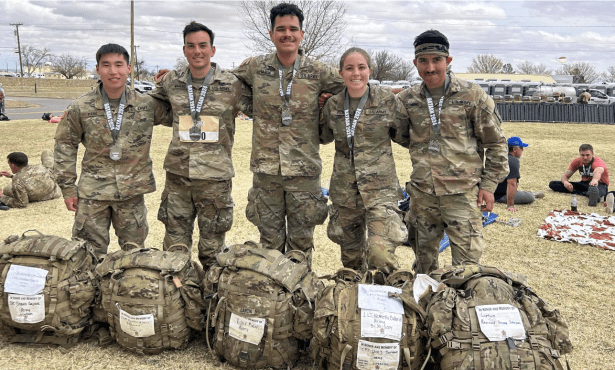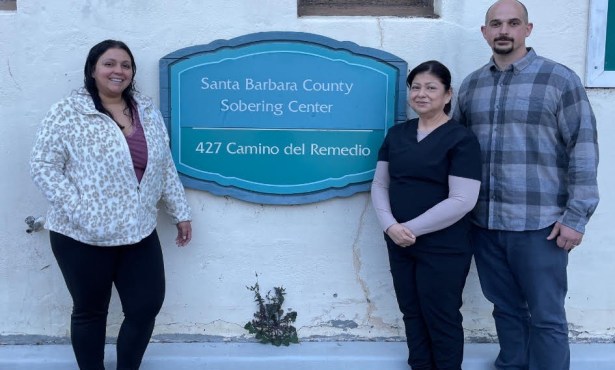California Pauses Use of Johnson & Johnson Vaccine
Comes After Federal Recommendation Citing Rare Cases of Blood Clotting
The much-sought-after single-dose Johnson & Johnson vaccine has just been pulled from the State of California’s COVID-19 vaccine program after a federal recommendation earlier today due to “rare and severe” blood clots that developed in six patients nationwide.
“We are recommending a pause in the use of this vaccine out of an abundance of caution,” read the statement from Dr. Anne Schuchat of the Centers for Disease Control and Dr. Peter Marks of the Food and Drug Administration.
Santa Barbara County will also suspend the use of Johnson & Johnson, the Public Health Department said, following the state’s lead. “Any clinics scheduled this week that originally planned to use the Johnson & Johnson vaccine will not be cancelled, but instead use the Moderna vaccine,” Public Health said in a statement.
Six women between the ages of 18 and 48 had developed a certain type of blood clot six to 13 days after they received the Johnson & Johnson vaccine. This specific type of clot — a cerebral venous sinus thrombosis (CVST) — would be treated differently than other clots, for which the blood-thinner heparin is often used, the joint CDC/FDA statement warned. One woman died, and a second is hospitalized, the New York Times reported.
Johnson & Johnson issued a statement that said the company was “aware of the extremely rare disorder involving people with blood clots in combination with low platelets.” The pharmaceutical giant also stated it was reviewing the cases with health authorities in Europe.
In Santa Barbara County, 12,409 people have received the J&J vaccine. Lompoc Valley Medical Center and Marian Regional Medical Center had hundreds of doses that they hadn’t yet administered. Marian spokesperson Sara San Juan noted that the J&J incidents of clotting appeared to be either equal to or less than occurrences in the general population.
Drs. Schuchat and Marks’s statement regarded the clots as extremely rare among the more than 6.8 million people who have received doses of the vaccine. Symptoms of severe headache, abdominal pain, leg pain, or shortness of breath within three weeks of the vaccine could presage the adverse reaction, and patients are advised to contact their doctor.
A federal advisory committee on immunization practices will meet on Wednesday to review the cases and determine their significance, the statement said.
Dr. Lynn Fitzgibbons, an infectious disease specialist with Cottage Health, took the federal intervention as a sign that health authorities were reacting appropriately as information came to light. “Everyone I’ve spoken to today is concerned to hear this news,” she said. “It’s clearly anxiety provoking for anyone who’s received the Johnson & Johnson vaccine so far, and it clearly has big implications to our ongoing vaccine efforts. It raises issues for anyone who was on the fence toward getting the vaccine.”
Blood clots in vessels that drain from the brain are also an issue with the AstraZeneca vaccine, which has not been authorized for use in the United States. Dr. Fitzgibbons explained that both the J&J and AstraZeneca, called the Oxford vaccine when under development, were “viral vector” vaccines that used types of adenovirus to induce antibodies. “They inject a whole virus that doesn’t cause illness or disease, but the immune system responds,” she explained. The process is very different from the Pfizer and Moderna vaccines, Fitzgibbons said, which inject short chains of mRNA to start antibody production.
As in the J&J vaccine, the side effect was equally rare for AstraZeneca, occurring about 164 times in Europe so far among 34 million doses given; 190 million have been distributed worldwide. Most of the European cases occurred among women younger than 60 and within two weeks of vaccination, according to the European Medicines Agency, which on April 7 reversed its earlier position and advised a “pause” on AstraZeneca. Countries responded in their own ways, either halting vaccinations or limiting the age group to whom they were given.
Similar to the J&J side effect, the clot developed even though patients had low counts of platelets, a type of blood cell that promotes clotting. Dr. Fitzgibbons called the paradoxical effect similar to one seen in patients given heparin. The blood thinner sometimes causes antibodies that trigger blood clots while also reducing the quantity of platelets.
Both for its single dose and ability to withstand normal temperatures, the Johnson & Johnson vaccine was seen as a boon to help stop the COVID-19 pandemic as it could inoculate people in areas far from hospitals, health clinics, and the very low temperatures the Moderna and Pfizer vaccines require for storage. The company had been prepared to send 200 million doses to Europe this year, up to 400 million to African nations, and provide 100 million to the United States.
Support the Santa Barbara Independent through a long-term or a single contribution.



